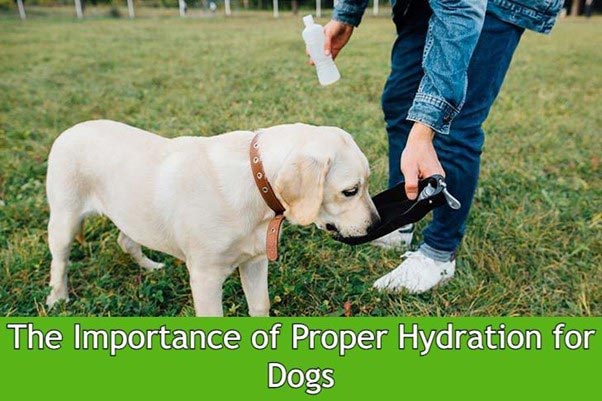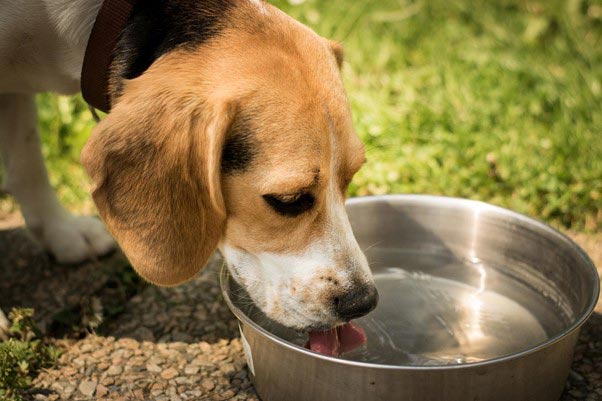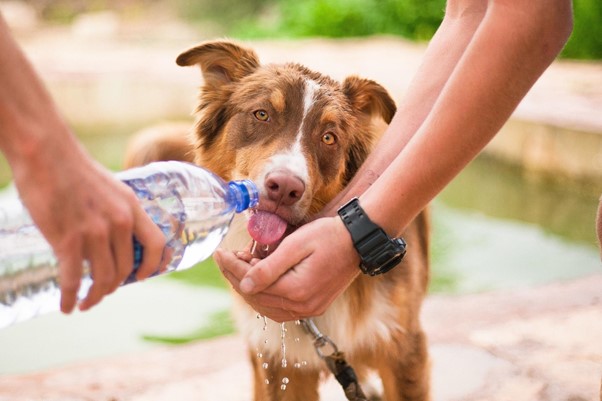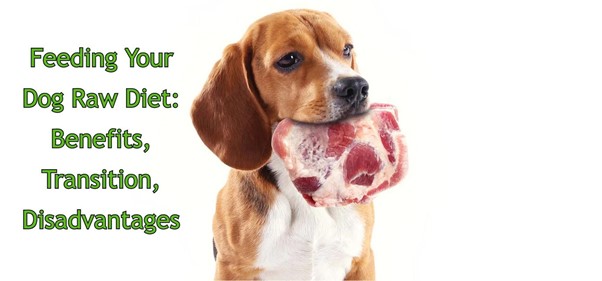The Importance of Regular Vet Check-Ups for Your Dog
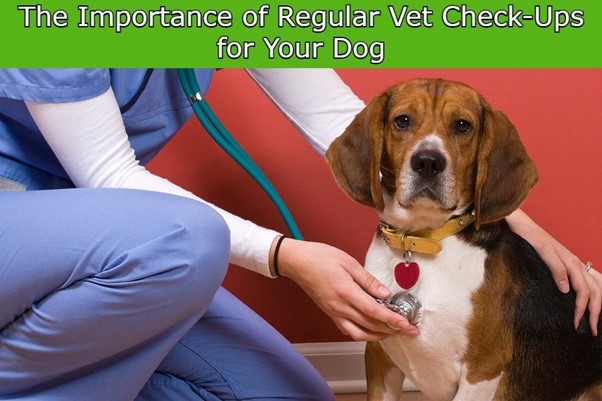
Regular veterinary check-ups are an important part of keeping your dog healthy and happy. Not only do these visits provide the opportunity to detect any potential health problems, but they also give you a chance to ask questions about how best to care for your pet.
By having regular vet exams, you can be sure that your four-legged friend is receiving the best possible care and preventative treatments available.
In this article, we’ll explore why routine vet check-ups are essential for dogs as well as what happens during a typical visit, the benefits of routine veterinary care, tests conducted by veterinarians, signs that warrant immediate attention from a veterinarian, and tips on maintaining good veterinary habits with your pup.
Let’s dive in!
Why Regular Vet Check-Ups are Important for Dogs
According to DogPetGuide.com, an online dog resource site where dog owners find trusted reviews and advice on canine care, regular veterinary check-ups are important to ensure that your dog is healthy and remains in top condition. Dogs can’t tell us when they don’t feel well, so it is up to us as owners to take them to the vet regularly for check-ups.
Doing so will help to identify any health issues that may be present and can help to prevent them from escalating into major illnesses or diseases.
The earlier a problem is caught, the easier it is to treat and the better chance your dog has of avoiding serious medical problems in the future.
What Happens During a Routine Exam?
Have you ever wondered what your veterinarian does during a routine vet exam? It can be intimidating for the uninitiated, with all of the various tools and tests being performed.
But it’s important to understand what happens during these examinations so that you can feel comfortable knowing that your dog is receiving the best care possible.
Let’s take a look at what goes on during a dog’s routine vet exam.
The Physical Exam
The first thing that happens during a vet visit is the physical exam. This involves checking your dog’s eyes, ears, skin, coat, teeth, and gums.
The vet will also look for signs of parasites such as fleas or ticks. They may also perform palpation to check for any internal illnesses or injuries.
This includes feeling your dog’s abdomen to check for any lumps or abnormalities in its organs or abdominal cavity.
Finally, they will check your dog’s vitals such as temperature, pulse rate, and respiration rate to ensure everything is functioning correctly.
Blood Tests
Your vet may also recommend blood tests to check for any underlying illnesses or conditions that may not be apparent on physical examination alone.
These tests help detect diseases like heartworm infection and diabetes early on so that treatment can be started quickly and effectively before the condition becomes too severe.
Blood tests can also provide useful information about organ function and nutritional status which is important when developing an appropriate diet plan for your pet.
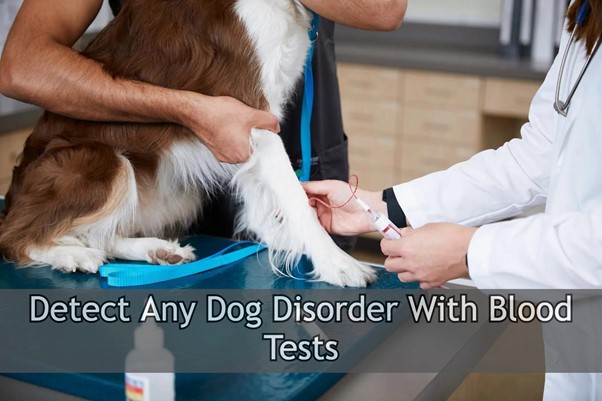
Benefits of Routine Veterinary Care for Dogs
Scheduling routine vet appointments for your dog can not only keep them healthy but also helps to avoid potentially serious health problems in the future.
Early detection and treatment can save you money in the long run, as well as ensure that your pet remains healthy and happy.
Here are a few reasons why you should make regular visits to the vet a priority for your pup.
Vaccinations
Vaccinations are an important part of keeping your dog healthy and safe from dangerous diseases such as rabies and the distemper virus.
Most vets recommend vaccinating puppies at around 6-8 weeks old and then giving them boosters starting at 12 weeks of age until they are 16 weeks old. After that, yearly boosters are recommended to keep their immunity against these potentially deadly viruses.
Talk to your vet about which vaccines are best for your pet’s lifestyle and health needs as different dogs have different requirements based on their age, breed, size, living environment, etc.
Early Detection & Prevention
Regular checkups give your veterinarian a chance to spot any potential health problems before they become worse or even irreversible.
For example, if left untreated, dental disease can cause major damage to a dog’s teeth and gums, leading to pain, infection, and even loss of teeth in extreme cases.
With regular exams and professional cleanings (which can usually be done at home with the help of an experienced groomer), many dental issues can be avoided or treated quickly before any permanent damage occurs.
Parasite Control
Fleas, ticks, and other parasites are not only irritating to dogs but can also lead to serious infections if left untreated for too long.
During checkups, vets will inspect for signs of fleas or ticks on your pup’s skin or fur and suggest treatments if needed.
Parasite control is important to prevent skin irritations and infections from developing into something more severe like mange or heartworm disease.
Nutritional Guidance
A good diet is essential for keeping your pooch healthy! During exams, vets will assess your pup’s weight and metabolism levels to recommend an appropriate diet that meets their individual needs.
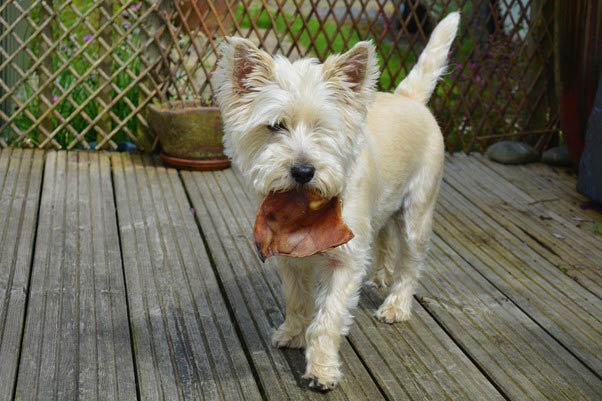
Your vet can advise on optimal nutrition for your furry friend, whether it’s a raw food diet, more protein, extra vitamins, and minerals due to age, or activity level.
Behavioral Evaluation & Training Advice
Dogs have different personalities just like humans do. Some may have anxiety issues while others may have aggression issues that need addressing through proper training techniques.
These techniques are recommended by professionals with experience in canine behavior modification techniques such as clicker training techniques used by rescue centers around the world.
Regular evaluations will help identify any behavioral problems early on so they can be addressed before becoming too difficult to manage without professional intervention.
Spay/Neuter Surgery
Having your pup spayed or neutered is important not only for preventing unwanted litters but also for promoting overall health benefits such as reducing the risk of certain cancers which increases with age.
Vets will discuss the best timing options depending on breed type, size, sex, etc so that owners get optimum results with minimal risks associated with this surgical procedure.
Weight Management
Some breeds are prone to obesity due to pre-existing metabolic conditions which makes it even more important for these pups’ owners to track their weight gain over time.
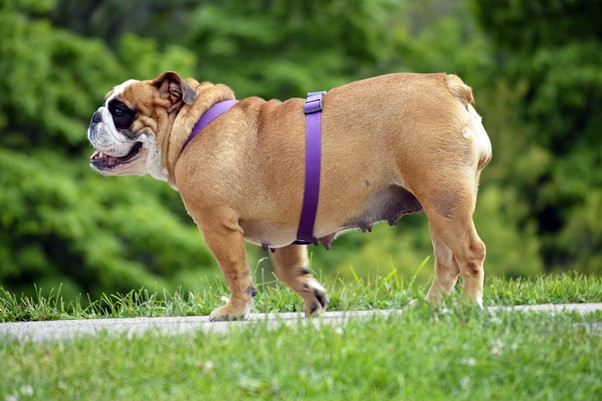
Regular checkups provide a great opportunity for vets to evaluate whether pups are within acceptable weight ranges based on breed type, size, sex, age, etc., making adjustments if needed.
Heartworm Prevention
Heartworm disease is spread by mosquitoes carrying larvae that infect dogs when bitten causing internal organ damage and eventually leading to death if not treated quickly enough.
Allowing vets to test pups yearly prevents this condition since medications available today can protect against heartworms in addition to other parasites such as ticks and fleas.
Microchip Implants
Microchips are small devices implanted between shoulder blades containing identification information linked to national databases enabling lost pets quickly be found and reunited with their owners.
While microchipping is not mandated law yet it is highly recommended so owners don’t lose their beloved companions in instances where collar tags don’t provide sufficient protection.
Dental Care
Practicing good oral hygiene is essential for maintaining overall health.
However, brushing your teeth regularly isn’t always enough. Scheduling professional cleanings every six months allows veterinarians to detect any underlying dental issues early on.
This helps prevent additional damages from occurring down the line resulting from tartar build which could require extractions otherwise.
Types of Tests Conducted by the Vet to Check Your Dog’s Health
Regular checkups help your dog stay healthy, happy, and active for years to come. But what kind of tests should you expect your vet to conduct?
The following are some essential tests you should consider for your canine companion.
Physical Examination
During a regular checkup, veterinarians will perform a physical examination to assess your pup’s overall health.
This includes checking the eyes, ears, and mouth for any signs of infection or disease and examining their fur and skin to ensure they are free of parasites, cuts, bumps, and sores.
They will also perform a general palpitation of the body to check for any abnormalities.
Check out more by clicking the link below.
Vaccinations
Vaccines are an essential part of your pup’s healthcare, as they protect them from diseases like rabies, distemper, parvo, and more.
Your vet will review which vaccines your pup needs based on their age, lifestyle, and breed.
Blood Tests
A blood test is important for assessing your pup’s overall health as it can detect any underlying diseases or disorders that may be present in the body.
It also helps to track organ function and check for anemia, infections, and other illnesses.
Depending on your pup’s age and risk factors, your vet may suggest more frequent blood tests.
Urinalysis
During a urinalysis, veterinarians will analyze your pup’s urine to check for any abnormalities such as infection or the presence of an underlying disease.
It is also used to monitor the health of their kidneys and detect any problems such as dehydration.
Intestinal Parasite Screening
Intestinal parasites, or worms, are a common issue for pups and can cause a variety of health problems including malnutrition and anemia.
A fecal test will help your vet detect parasitic eggs present in the sample so they can prescribe the appropriate treatment if needed.
Weight Management
Keeping your pup at a healthy weight is essential for their overall well-being.
Your vet will likely evaluate whether pups are within acceptable weight ranges based on breed type, size, sex, age, etc., making adjustments if needed.
Dental Care
Practicing good oral hygiene is essential for keeping your pup’s teeth and gums healthy.
During regular checkups, vets will examine their mouths for any signs of periodontal disease or other dental issues.
Scheduling annual cleanings and X-rays every six months allows veterinarians to detect any underlying dental issues early on.
This helps prevent additional damages from occurring down the line.
These tests can help to detect any potential health issues, such as infection, parasites, and heart problems.
If the vet finds anything during these exams, they may recommend further testing or treatment.
Signs You Need To Take Your Dog to The Vet Immediately
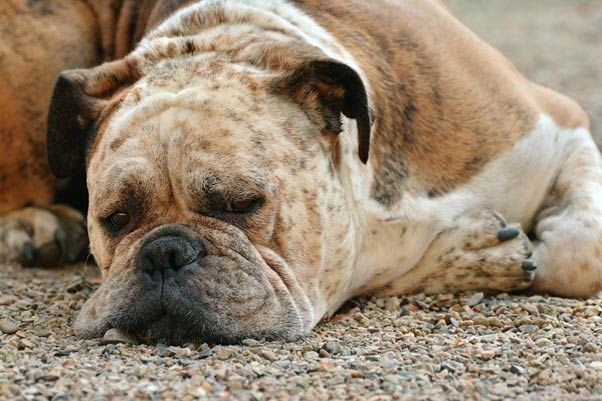
If your dog is exhibiting any of the following signs, it is important to take him or her to the vet immediately:
Abnormal Urination or Bowel Movements
Your pup should never have difficulty urinating or having a bowel movement. If they’re having either, it could be a sign of dehydration, an infection, kidney disease, or even diabetes.
Vomiting
Throwing up once in a while isn’t necessarily cause for concern (as long as there are no other symptoms).
But if your pup is vomiting multiple times per day or if there is blood in the vomit, it could be a sign of something serious and warrant a trip to the vet immediately.
Loss of Appetite
A decrease in appetite could be caused by anything from dental problems to cancer, so don’t ignore it!
Make sure to monitor any changes in eating behavior and take your pup to the vet if there is any significant change over time.
Excessive Drinking
Just like abnormal urination can be indicative of health issues, excessive drinking can too!
It could mean that your pup has diabetes or Cushing’s Disease and needs medical attention right away.
Changes in Behavior
If you notice any sudden changes in behavior such as aggression or depression, this could mean that something is physically wrong with your pup and they need medical attention right away.
Coughing/Wheezing/Difficulty Breathing
These symptoms can point towards heart disease or pneumonia which require immediate veterinary attention to treat correctly!
Lameness/Joint Swelling/Limping
Any kind of lameness should be checked out right away by a veterinarian as it could indicate arthritis, trauma, hip dysplasia, joint pain, nerve damage—you name it!
Excessive Scratching/Hair Loss/Skin Irritation
Allergies are common among dogs but if you notice excessive scratching accompanied by hair loss or skin irritation take your pup to the vet ASAP as this could be indicative of something more serious like mites or parasites that need treatment immediately!
Fever
A fever indicates an infection that needs to be treated by a veterinarian as soon as possible!
Discharge from Eyes/ Nose/ Ears, or Genitals
Discharge from the eyes, nose, ears, or genitals means that fluid is coming out of these body parts.
It could be a sign of something wrong and you should see a vet right away. Early diagnosis and treatment of any underlying issues can help prevent long-term problems.
No matter what symptoms your pup is exhibiting, it’s important to take them to the vet immediately.
Tips for Maintaining Good Veterinary Care Habits With Your Dog
It is essential to stay on top of your dog’s veterinary care. Here are some tips for keeping your pet healthy:
Schedule Regular Checkups
It is important to take your dog in for regular checkups at least once a year.
This will give your veterinarian a chance to monitor any health changes over time, catch any potential issues early on, and keep up to date on vaccinations.
Be Prepared
Before every vet visit, make sure you have all of your pet’s medical records handy.
It’s also helpful to prepare a list of questions or concerns that you may have about their health in advance.
This will ensure that nothing gets overlooked during the appointment.
Know Your Dog's Diet
Knowing what type of food your pup eats and how much they eat can help the vet form an accurate assessment of their overall health.
Be sure to bring this information with you if your pet has changed diets recently or if they are on a special diet for any reason.
Bring Along Samples
If there are any concerns about skin conditions, digestive issues, allergies, etc., it can be helpful to bring along samples (such as fur clippings or stool samples).
This way the vet can examine them more closely and provide an accurate diagnosis and treatment plan if needed.
Follow-Up After Visit
After each visit, make sure you follow up with your veterinarian regarding any questions or concerns that were discussed during the appointment.
It is also important to pay attention to how your pet behaves after each visit and report any changes in behavior or activity level to the vet right away so they can adjust medications or treatments accordingly.
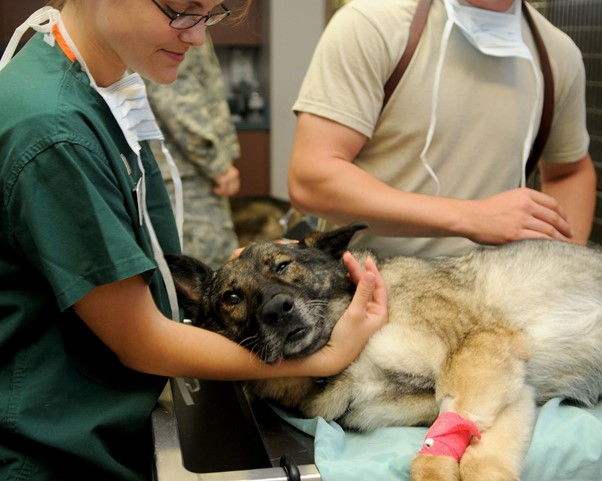
Keep Vaccinations Up To Date
Vaccinating your pet is essential for keeping them healthy and protecting them from diseases like rabies and distemper virus which can be fatal if left untreated.
Make sure you keep all of their vaccination records up-to-date and bring them with you on each visit so that the vet can assess whether or not additional vaccinations are needed based on their age and lifestyle habits.
Know Your Pet's Medical History
Keeping track of all past medical procedures such as surgeries, X-rays, ultrasounds, etc., can help avoid complications down the road by alerting vets early on when something might be wrong with your pup’s health before it becomes too serious of an issue.
Give Medication Properly
If there is ever a need for medication from the veterinarian you must give it properly according to instructions so that it works correctly for treating whatever condition needs addressing (i.e., antibiotics for infections).
Regular Grooming And Dental Care
Grooming plays an important role in keeping pets healthy by removing dirt and debris from their coat which could lead to irritation or infection if left unchecked.
Similarly brushing teeth regularly helps remove plaque buildup which could lead to dental disease if left untreated over time..
Ask Questions
Don’t hesitate to ask questions during appointments! Veterinarians know what they’re talking about when it comes to caring for animals.
Therefore, don’t be afraid to ask anything that comes up regarding pet care advice or general wellness tips—it’s better safe than sorry!
Conclusion
Proper veterinary care is essential to keeping pups happy and healthy throughout their lives. From vaccinations parasite control nutritional guidance microchip implants their numerous benefits to scheduling regular visits to vets for both short-term long term wellness goals mind.
If you ever have any questions or concerns about your dog’s well-being, do not hesitate to contact your vet for advice.
By taking proactive steps to address any potential issues quickly and easily pet parents ensure their canine friends live life to the fullest possible!
The Importance of Regular Vet Check-Ups for Your Dog Read More »
